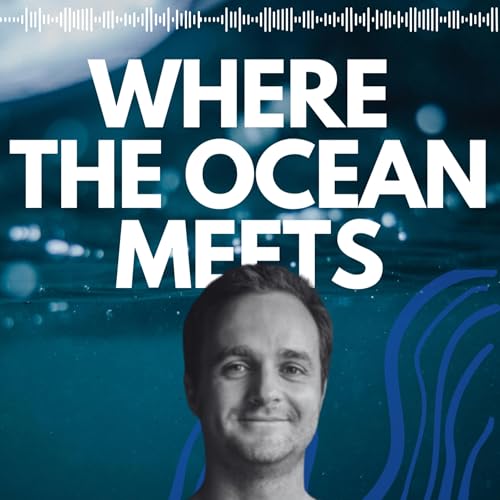
Dead or alive? How this ecologist (re)discovers potentially extinct species | Where The Ocean Meets: Christina Biggs
カートのアイテムが多すぎます
カートに追加できませんでした。
ウィッシュリストに追加できませんでした。
ほしい物リストの削除に失敗しました。
ポッドキャストのフォローに失敗しました
ポッドキャストのフォロー解除に失敗しました
-
ナレーター:
-
著者:
このコンテンツについて
Dead or alive? How this marine ecologist (re)discovers (potentially) extinct species.
Episode Description
We're living through the Triple Planetary Crisis: climate change, biodiversity loss, and pollution. But while climate change dominates headlines, biodiversity loss quietly accelerates—our planet experiences its 6th mass extinction event.
Christina Biggs, a marine ecologist, dedicates her career to a deceptively simple question: Is this species really extinct?
In this episode, Christina takes us on expeditions from the Galapagos Islands to the deep sea's mesophotic zone, where she searches for species scientists haven't documented in decades. We explore how she uses cutting-edge eDNA technology to detect life we can't see, why technical divers risk their lives at 75 meters depth, and how a coral everyone thought was extinct adapted to survive by moving deeper.
But this conversation goes beyond lost species. Christina explains why a single centipede matters to the air we breathe, how aquariums serve as genetic arks for species with nowhere else to go, and why understanding ocean ecosystems—particularly the understudied deep sea—determines our own survival.
This isn't a doom-and-gloom conversation. Christina shares stories of hope: sharks being rewilded in Raja Ampat, coral refuges in unexpected places, and local communities becoming the stewards of cutting-edge conservation technology.
Whether you've never thought about marine ecosystems or you're already ocean-obsessed, this episode will change how you see the interconnectedness of life on Earth.
Memorable Moments
[08:14] What a conservation ecologist's "two separate days" look like—from spreadsheets to ship-bound expeditions
[13:03] The staggering numbers: we're losing hundreds of species daily in the 6th mass extinction
[18:46] How to identify which species on the "lost" list face true extinction vs. just haven't been found
[30:14] The mind-bending technology of eDNA: detecting life from discarded cells in water
[42:03] The chicken-and-egg problem: finding DNA from species that haven't been sequenced yet
[51:24] Technical divers who spend 4-5 hours underwater with complex gas mixtures—and why they do it
[54:46] The Wellington's coral rediscovery: how a "shallow water" coral survived by adapting to the deep
[01:03:16] The ReShark project: a conservation success story that restores hope
Guest Bio
Christina Biggs is a marine conservation ecologist who ran the Lost Species Program, searching for species that haven't been documented in over 10 years. Her work spans from Madagascar to the Galapagos Islands, combining traditional fieldwork with emerging technologies like eDNA sampling. Previously, she worked at the Monterey Bay Aquarium and Research Institute. Christina specializes in making conservation science accessible and is currently developing tools that allow recreational divers to contribute to reef biodiversity data.
Links & Resources
Support Christina's Research:
- Experiment.com - California Biodiversity Institute Monterey Study (crowdfunding platform for scientific research)
Organizations Mentioned:
- IUCN (International Union for Conservation of Nature) Red List
- Association of Zoos and Aquariums (AZA)
- World Association of Zoos and Aquariums (WAZA)
- Schmidt Ocean Institute
- ReShark Project (Raja Ampat & Thailand)
- Monterey Bay Aquarium Research Institute
Subscribe so you don't miss future episodes exploring ocean conservation, marine science, and the people working to protect our blue planet.
Share this episode with someone who needs to understand why ocean health matters—even if they live nowhere near the coast.


